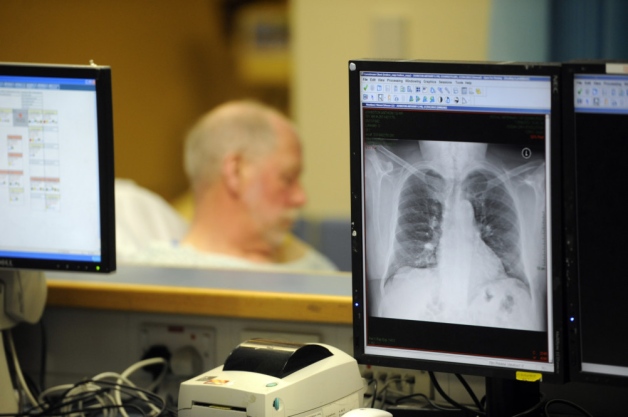Rural Domestic Violence, Dating Violence, Sexual Assault, and Stalking Assistance Program
- Violence Against Women Formula Grants
- Violence Against Women Discretionary Grants for Indian Tribal Governments
- Grants to Encourage Arrest Policies and Enforcement of Protection Orders
Examples of Funded Projects
Partnerships among government agencies, community based organizations, and faith based organizations to address domestic violence, dating violence, sexual assualt, and stalking more comprehensively; coordinated community responses to domestic violence, dating violence and child victimization that involve training for criminal justice practitioners and protocol development; and initiatives addressing the needs of diverse populations in rural areas, including bilingual advocacy and assistance in immigration matters.
- OVW FY 2017 Rural Sexual Assault, Domestic Violence, Dating Violence and Stalking Program Solicitation
- OVW FY 2016 Rural Sexual Assault, Domestic Violence, Dating Violence and Stalking Program
- Supporting Maternal and child Health Activities in Ethiopia
- OVW FY 2015 Rural Sexual Assault, Domestic Violence, Dating Violence and Stalking Program
- OVW FY 2015 Rural Sexual Assault, Domestic Violence, Dating Violence and Stalking Program
The Department of Justice enforces the law and defends the interest of the United States, ensuring public safety against threats foreign and domestic; providing Federal leadership in preventing and controlling crime; seeking just punishment for those guilty of unlawful pursuits; and ensuring fair and impartial administration of justice for all Americans.
Relevant Nonprofit Program Categories
Program Accomplishments
FY 07: Applications: 160, Awards: 64; FY 08: Applications: 244, Awards: 57; FY 09: est. Applications: 244, Awards: 40.
Uses and Use Restrictions
Funding may be used to carry out programs serving rural areas or rural communities that address domestic violence, dating violence, sexual assault, and stalking by implementing, expanding, and establishing cooperative efforts and projects among law enforcement officers, prosecutors, victim advocacy groups, and other related parties to investigate and prosecute incidents of domestic violence, dating violence, sexual assault, and stalking; providing treatment, counseling, advocacy, and other long- and short-term assistance to adult and minor victims of domestic violence, dating violence, sexual assault, and stalking in rural communities, including assistance in immigration matters; and working in cooperation with the community to develop education and prevention strategies directed toward such issues.
Eligibility Requirements
Applicant Eligibility
States, Indian tribes, local governments, and nonprofit, public or private entities, including tribal nonprofit organizations, are eligible to carry out programs serving rural areas or rural communities that address domestic violence, dating violence, sexual assault, and stalking.
Beneficiary Eligibility
Beneficiaries include criminal and tribal justice practitioners and service providers who respond to victims of domestic violence, dating violence, sexual assualt, and stalking in rural jurisdictions and Indian country.
Credentials/Documentation
None.
Aplication and Award Process
Preapplication Coordination
This program is eligible for coverage under E.O.
12372, "Intergovernmental Review of Federal Programs." An applicant should consult the office or official designated as the single point of contact in his or her State for more information on the process the State requires to be followed in applying for assistance, if the State has selected the program for review.
Application forms furnished by the Federal agency, in accordance with 28 CFR, Part 66 (Common Rule), must be used for this program.
Application Procedures
Detailed information is provided in a program solicitation which is obtained by sending a self-addressed mailing label to NCJRS, Box 6000, Rockville, MD 20849-6000; calling toll free to request a copy at (800) 851-3420; or accessing the web site at www.ojp.usdoj.gov/nij under Funding Opportunities. This program is subject to the provisions of OMB Circular No.A-110 or the Common Rule where applicable. The Office of Justice Programs (OJP) requires that funding applications be submitted electronically through the OJP Grants Management System (GMS), which will be accessed at http://www.ojp.usdoj.gov/fundopps.htm. On-line submission of an application represents legal binding acceptance of the terms of the application. For further information about GMS, call the OJP GMS Hotline at 1-888-549-9901.
Award Procedures
Subject to the availability of appropriated funds, NIJ anticipates that it will make an award to each eligible applicant that satisfies the specific application requirements outlined in this announcement (including those concerning allocation of funds, unobligated FY 2005-FY 2006 Backlog Reduction Awards, and permissible expenses), the general requirements for NIJ and OJP grants, and all other applicable legal requirements. Reasons for rejection: NIJ may reject applications that are incomplete, do not respond to the scope of the solicitation, do not comply with format requirements, or are submitted after the deadline.
Deadlines
Contact the Office on Violence Against Women for application deadlines.
Authorization
Violent Crime Control and Law Enforcement Act of 1994, Section 40295, 42 U.S.C. 13971, as amended; Violence Against Women Act of 2000, Public Law 106-386; Violence Against Women and Department of Justice Reauthorization Act, Title II, Section 203, Public Law 109-162.
Range of Approval/Disapproval Time
Applicants will be notified before the end of the fiscal year.
Appeals
Not applicable.
Renewals
Renewals are considered on a case-by-case basis.
Assistance Considerations
Formula and Matching Requirements
A range of 25-40 percent of funds (depending on the size of appropriations) are set aside for services that meaningfully address sexual assault in rural communities. 75 percent of funds is allocated to eligible entities in rural states. "Rural state" is defined as a state that has a population density of 52 or fewer persons per square mile or a state in which the largest county has fewer that 150,000 people, based on the most recent decennial census. Eighteen States qualify as rural for the purposes of this grant program: Alaska, Arkansas, Arizona, Colorado, Idaho, Kansas, Maine, Montana, Nebraska, Nevada, New Mexico, North Dakota, Oklahoma, Oregon, South Dakota, Utah, Vermont, and Wyoming. Grants will be made for amounts up to 100 percent of the costs of the programs or projects contained in the approved applications. Match is not required for this grant program; however, applicants are encouraged to maximize the impact of Federal grant dollars by contributing to the costs of their projects. Supplemental contributions may be cash, in-kind services, or a combination of both.
Length and Time Phasing of Assistance
Up to 24 months. Funds are released on an as-needed basis to the grantee.
Post Assistance Requirements
Reports
Semi-annual progress reports, and quarterly financial reports, and a final report are required, as stipulated in the program regulations and the effective edition of the OJP Financial Guide.
Progress reports should explain the activities carried out and include an assessment of the effectiveness of those activities in achieving the purposes of the program, including number of persons served and numbers of persons seeking services who could not be served.
Audits
All organizations that expend financial assistance of $500,000 or more in any fiscal year must have a single audit for that year in accordance with OMB Circular No. A-133, as amended, unless the audit condition on the award says otherwise. These audits are due to the cognizant Federal agency not later than 9 months after the end of the grantee's fiscal year.
Records
The award recipient must keep complete records on disposition of funds.
Financial Information
Account Identification
15-0409-0-1-754.
Obigations
(Grants) FY 07 $33,495,246; FY 08 est $28,965,535; and FY 09 est $20,275,875.
Range and Average of Financial Assistance
$81,000 - $850,000; $490,941.
Regulations, Guidelines, and Literature
The OJP Financial Guide is applicable.
Information Contacts
Regional or Local Office
None.
Headquarters Office
Office on Violence Against Women, Department of Justice, 800 K Street, N.W., Washington, DC 20530. Telephone: (202) 307-6026.
Criteria for Selecting Proposals
Criteria are established by the Office on Violence Against Women and included in an annual Application Kit.
Social Entrepreneurship
Spotlight
Social Enterprises: Key to Enhancing a Nation’s Health

Glasgow Caledonian University (GCU) has launched a series of noteworthy research projects to learn if social enterprises can help Scotland lose its “sick man of Europe” label and boost the nation’s overall health.

